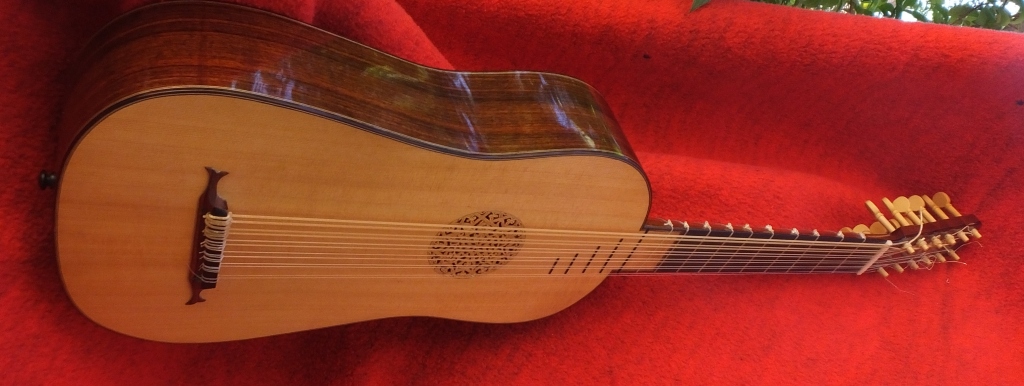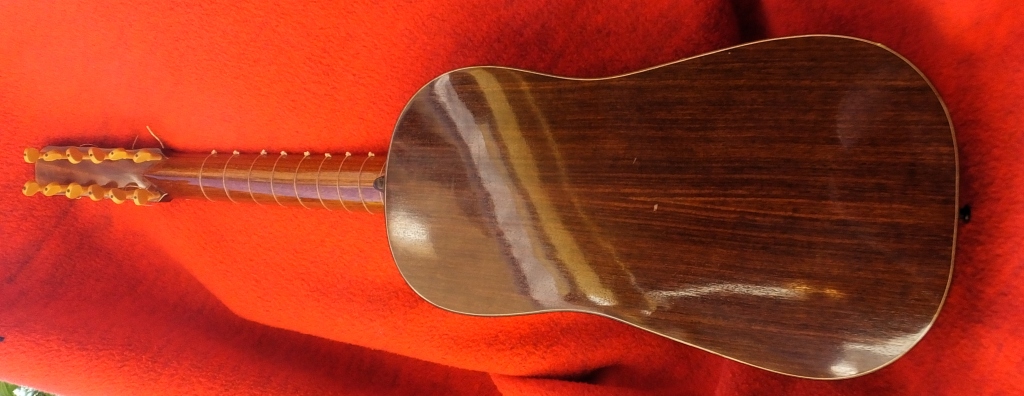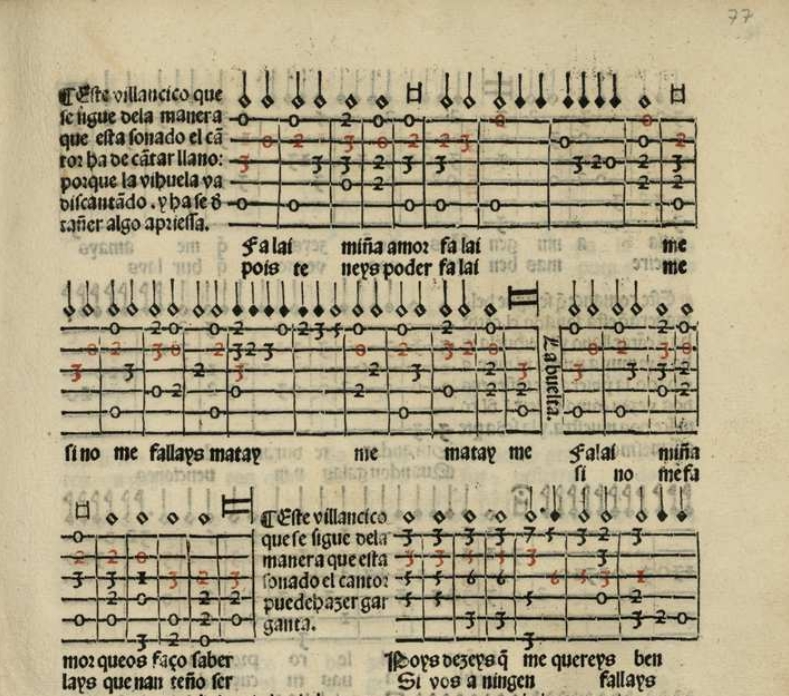Luis de Milán: Falai miña amor
Falai, miña amor,
falai me
Si no me fallays,
matay me, matay me
Falai, miña amor,
queos faço saber
Si no me fallays
que nan teño ser
Pois te neys poder,
falai me
Si no me fallays,
matay me, matay me
Talk my love,
talk to me
If you don’t talk to me,
then kill me, kill me
Talk my love,
Let them know
If you don’t talk to me,
there’s no pont in living
It is in your power
to talk to me
If you don’t talk to me,
then kill me, kill me
(non-literary, verbatim translation)
Szóljál, szívem, szólj,
vagy ölj meg,
Ha nem szólsz,
hát ölj meg, úgy öljél meg!
Szóljál, szívem, szólj,
hadd tudják mind meg!
Ha nem szólsz hozzám,
Mért éljek, mért is éljek?
Csak egy szót kérek,
vagy ölj meg,
Ha nem szólsz hozzám,
Ölj meg, hát öljél meg!
Fordította: Domján Gábor
VIHUELA
copy built by Tihamer Romanek in 2013. The original instrument: „Quito vihuela” (Iglesia de la Compañía de Jesús, Quito, Ecuador).
.



This Portuguese or Gallego villancico (song) is from Luis de Milán’s (~1500-~1561) Libro de música de vihuela de mano; Intitulado El Maestro (1536).
The engraving next to the MP3 player depicts Orpheus playing the vihuela from the above book. The picture under it shows the tablature of the song with the tune to be sung printed in red.
An early 17th century Spanish author writes about the vihuela:
“This instrument has been held in great esteem until our own times, and there have been excellent players; but since the invention of the guitars there are very few who apply themselves to the study of the vihuela. This is a great loss, because every kind of notated music can be put on to it, and now the guitar is nothing but a cow-bell, so easy to play, especially when strummed, that there is not a stable-boy who is not a musician of the guitar.”
Though I translated the poem, concerning its message, there’s no point in singing more than one initial line of it in Hungarian. Even that only for fun once the site is supposed to be about translations. However, it is quite lofty to sing in medieval Gallego, the temptation of which I couldn’t resist. My grateful thanks to Ms Laura Lukács literary translator for her help in phonetics, prosody and semantics of the Spanish and Portuguese texts.
One more word about the poem: Luis de Milán was also a poet, but his merit as a poet I cannot judge. However, the most famous Valencian poet of the time Fernández de Heredia advised Milán „to stick with the only art of which he was a master, vihuela playing”.


